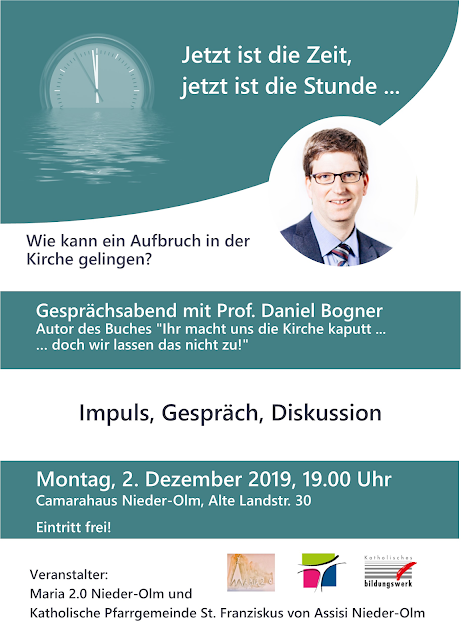Theologian wants laity to coerce bishops
Theologian Bogner: Voluntary self-commitment of bishops is useless
Power control in the Church through voluntary self-commitment of the bishops? For moral theologian Daniel Bogner, this concept, which the Synodal Path emphasises, has no "subsoil". Instead, he brings a different profile of the episcopate into play.
The Fribourg moral theologian Daniel Bogner criticises the voluntary self-commitment of bishops brought into play by the Synodal Path as useless and calls instead for more consistent steps in reforms in the Church. Real power control is "by definition" not possible with this legal form, Bogner writes in an article for the "Herder Korrespondenz" (June issue). "The subsoil of the whole project collapses in this way". The concept of voluntary self-commitment is a "step out" that wants to leave everything as it is and install a new practice within the formal validity of what has gone before.
"It would be part of the true sovereignty of the ordained minister to withdraw his self-commitment in case of doubt and to decide differently on his own authority," Bogner continued. But this is not provided for in the narrative of self-commitment. On the other hand, it contradicts genuine power control and the claim to participation if hierarchs merely voluntarily submit to the joint deliberations. "Power control and participation guarantees, if they are to be effective, must not once again be subject to the calculation of the Episcopal sovereign."
Preserve office, but new profile
Bogner emphasises that the Episcopal office structures the ecclesiastical social body and combines "representative-formative, witness-expressive and governmental-controlling moments". "This office should be preserved by the Catholic Church, because it belongs to its essence". For the Apostolic office, however, a profile could be sought which would remain in its Sacramental form, but to which not only men but also women would have access. "It would be an office that would be interpreted apostolically, but not monarchically. It would not lose its authority if it were subjected to binding, power-sharing control mechanisms." A Church that absorbs what has proven to be good in human history "often inspired by Biblical impulses" does not become a second Protestant church. "On the contrary, it preserves its very own historically evolved nature, but incorporates into its self-understanding those achievements that it should support from its own message - the equal dignity of men and women, the participation of all in the common mission, the limitation of earthly power."
Changes in the Church, he said, should always be identified in the mode of linking to tradition. "The way Rome is reacting to the timid attempts at reform from Germany, only one thing seems to remain: the self-empowerment of bishops interested in renewal to calculatedly violate boundaries," Bogner said. They should not do this, however, in order to simply break, "but in the interest of linking up with thread ends that have been undervalued and left lying around, no longer seen by the Roman centre".










.jpeg)

Comments